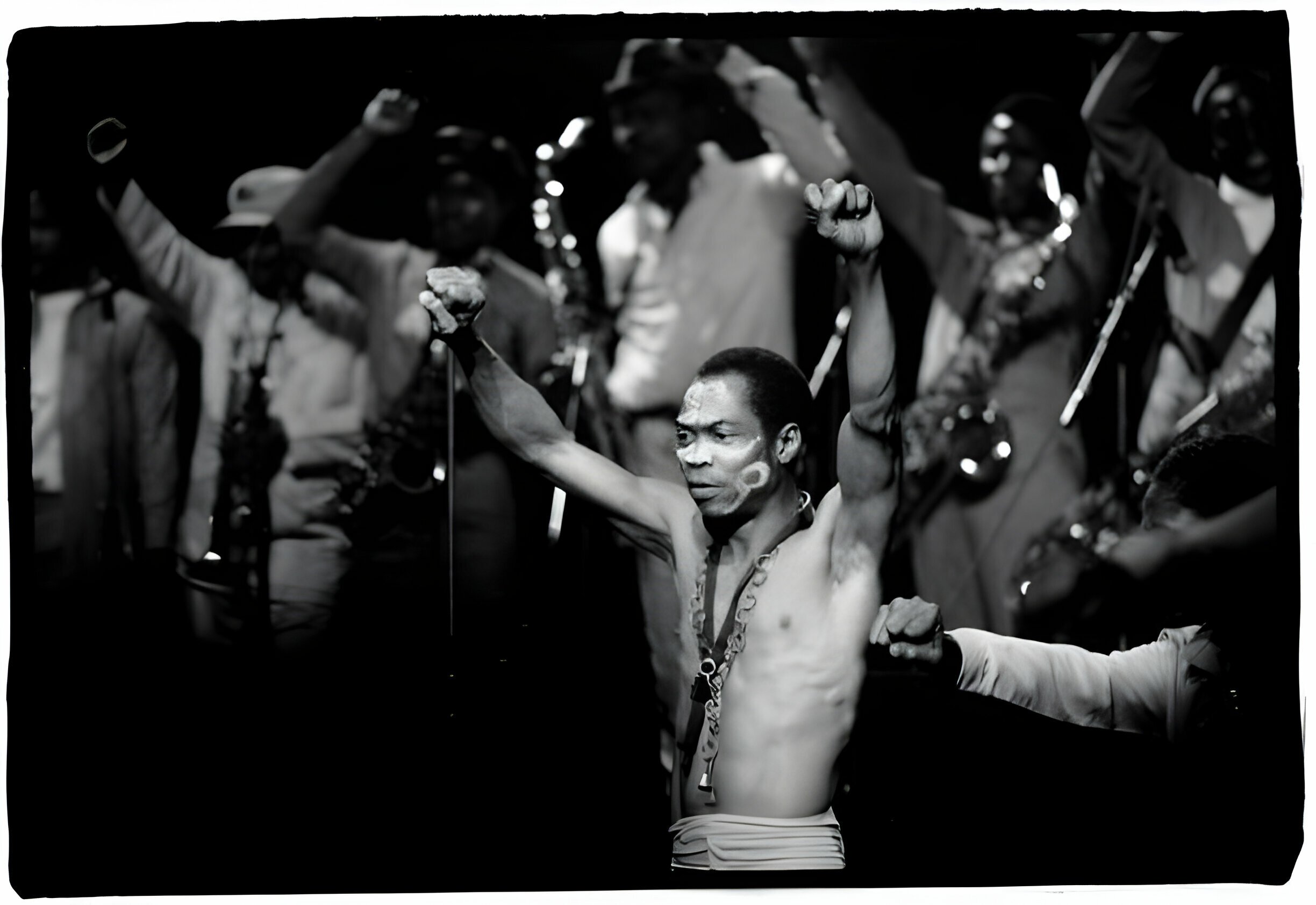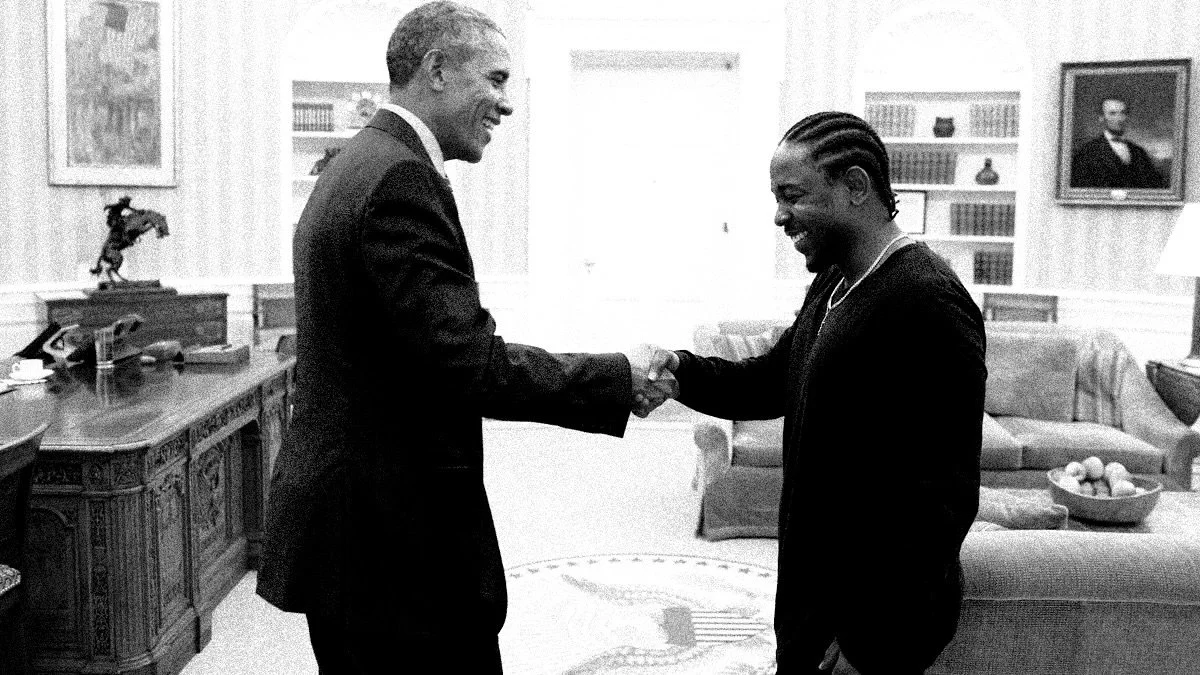Voices of Revolution: Black Music's Global Impact On Political Discourse
From the booth to the ballot, we're delving into the pivotal role of Black music as both a political truth-sayer and an art form.
The relationship between political shifts and Black music emerges as a compelling narrative, echoing the profound insights of Paul Gilroy's seminal work, There Ain't No Black in the Union Jack. Here, Black expression is often swiftly entwined with notions of criminality, perpetuating a deeply ingrained cycle of demonisation.
Nowhere is this more evident than in the racist conflation of crime and drill music, particularly apparent in the United Kingdom, where the policing of drill lyrics has become a contentious issue. Some of the most significant Black voices in UK drill history have had to face the stark reality of navigating a landscape fraught with prejudice and discrimination. Yet, this phenomenon is not confined to the UK alone; it resonates globally.
From Jamaica's Political dichotomy embodied in the music of Bob Marley to Nigeria's searing critiques of state oppression through the artistry of Fela Kuti and the anthemic chart-toppers from the States against police brutality by Kendrick Lamar and N.W.A—Black music serves as a potent reflection of socio-political realities, highlighting its role as both a mirror and a megaphone for societal injustices worldwide.
The subgenre "drill" holds significant importance in British music history due to its impact extending beyond just music and becoming a cultural signifier that reflects and shapes a generation's experiences while pushing the boundaries of artistic expression. Its gritty, raw "urban" life challenged societal perceptions and gave a fresh perspective on the harsh realities many young people face in Britain's inner cities.
Going into what I believe are the real causes for unprecedented levels of violence would be a long and complex debate looking into "our" current government and their efforts when it comes to the reformation of some of the most deprived areas in the UK.
What strikes me is that political administrations then seek to blame music for the violence that they expedited in the first place! It is as if the glaring issue of poverty that is echoed through the music of rappers such as Digga, M1llionz and Headie One is a minute detail in what they see as the larger problem… drill music? Whether this is the case or not, the larger picture is why our rappers are inspired to make this "violent" music in the first place.
“I’m from P Block, I’m from P Block.
Where you put bullets in your G-Lock.
See opps and squeeze off, opps and squeeze off. Opps and beat off
and make them speed off.”
Musicians who incorporate violent lyrics in their work are simply depicting the harsh realities of society when our politicians completely fail to do so. Rather than blaming the messenger, acknowledge the uncomfortable truths they bring to light.
Just as all art does, music mirrors life itself. The collective experiences of Black communities worldwide are sentiments that are channelled through the medium of music. During Micheal Manley's tenure as Jamaica's Prime Minister, an iconic and influential musician emerged, none other than the Bob Marley. His legacy as a musical legend is unparalleled, his impact resonating deeply through his poignant lyrics addressing social and economic injustices.
Though Marley distanced himself from formal politics, his songs, infused with politicised themes, thrust him into a role as a symbolic "political" figure. Marley's notable track, "Revolution", serves as a rallying cry against injustice and oppression. Drawing heavy inspiration from the teachings of revered figure Haile Selassie I, revolution remains a timeless anthem highlighting Marley's so-called "Militant" ideologies towards political movements.
This sentiment reflects Marley's scepticism towards those in positions of authority and his belief in the importance of individual empowerment and self-reliance. Placed within the context of the tumultuous political landscape of Jamaica in the '70s, Marley's musical reign was amidst a time when political tensions and street violence were on the rise. Whether it was a conscious decision or not, because of this, Marley was placed at the forefront of conversation regarding political messaging due to his advocacy for social justice, peace, and unity. He was Jamaica's symbol of hope before and after his untimely passing in 1981.
“Never make a politician (aaa-aaah) grant you a favour (doo-doo-doo-doo). They will always want (aaa-aaah) to control you forever, eh (forever, forever).”
I can't help but notice the amount of noise tracks such as "This is America" by Childish Gambino or even Dave's "Black" make and how conversations online can be shaped by a single moment. These tracks are examples of music that can genuinely shift the discourse in how it reignites the anger many feel. Even if it takes scrutinising those in "power" or crafting compelling narratives that reflect the experiences of Black communities through lyricism, as I have stated previously, Black artistry consistently maintains a prominent presence in discourse.
In my opinion, Kendrick Lamar's "Alright" is one of the most powerful and impactful tracks in the history of hip-hop music. Lamar's lyrics delve deep into the struggles and injustices endured by African Americans, drawing from his personal upbringing in Compton, California, and broader societal realities. From the spectre of poverty, police brutality and systemic racism, Lamar paints a vivid portrait of the challenges faced by Black communities in America.
Yet, despite these tribulations, he adamantly asserts the spirit and collective strength that will ultimately prevail, affirming that they will indeed "be alright." Lamar's masterpiece of hip-hop transcends the realm of artistry and becomes a rallying cry for social and political activism. Embraced at #BLM protests and demonstrations, the track assumes a new dimension, channelling and resistance against systemic oppression and inequality becoming a defining track "for the people".
The political resonance of Black music transcends beyond mere entertainment alone; rather, I would argue it is the medium by which our voices can be taken the most seriously. Black music has played a crucial role in shaping political discourse globally, serving as a catalyst for social change. From its roots in the struggles for freedom and equality to its ongoing impact on contemporary society, Black artists have used their music to challenge oppression, celebrate resilience, and unite communities across borders.
Artists also use their artistry as a mouthpiece for those who face adversity daily due to race, status, etc, echoing harsh realities in the minds of those who are oblivious to the struggle Black communities face daily.
As we look to the future, it is clear that the voices of revolution will continue to resonate through one of the "greatest forces today"… the power of Black music.



